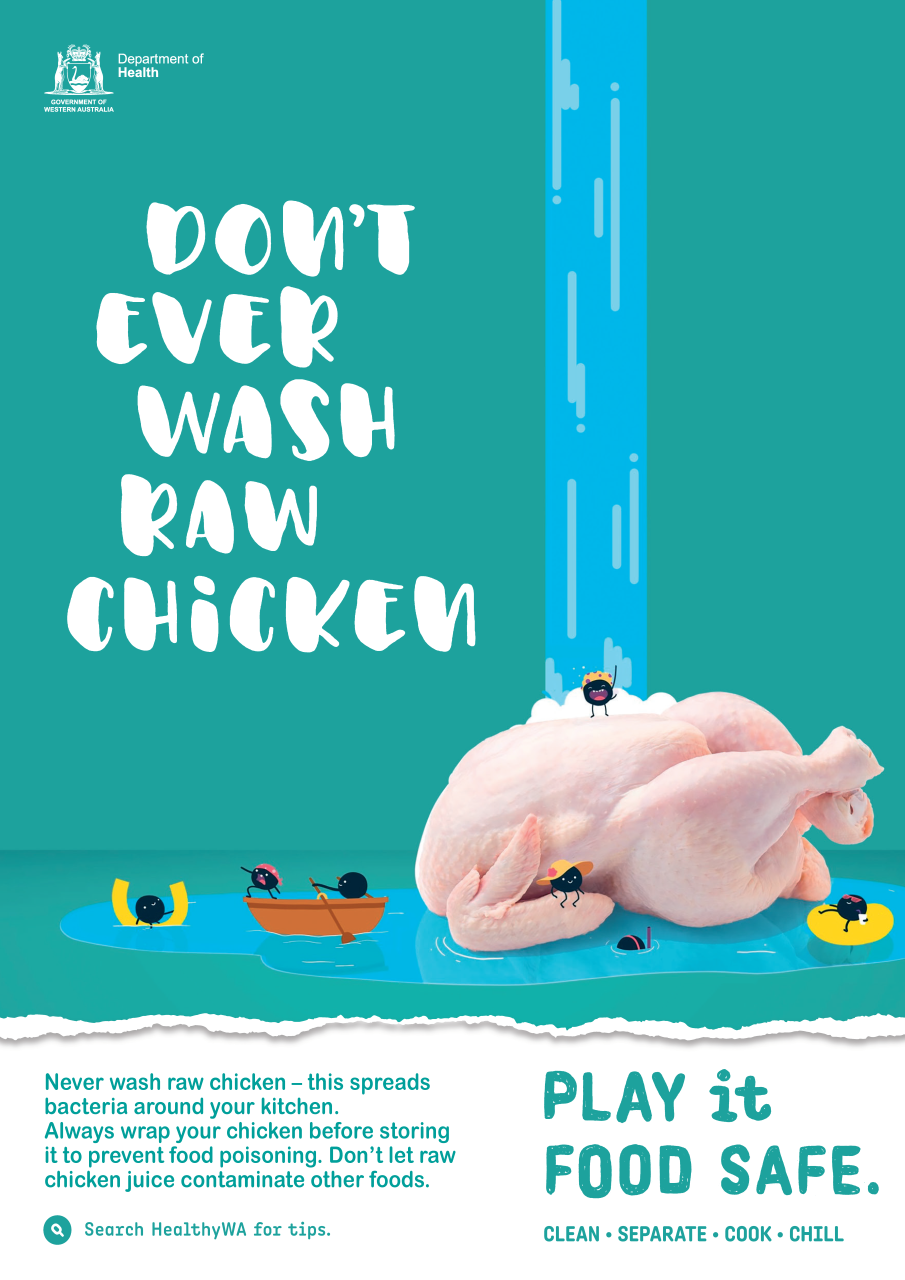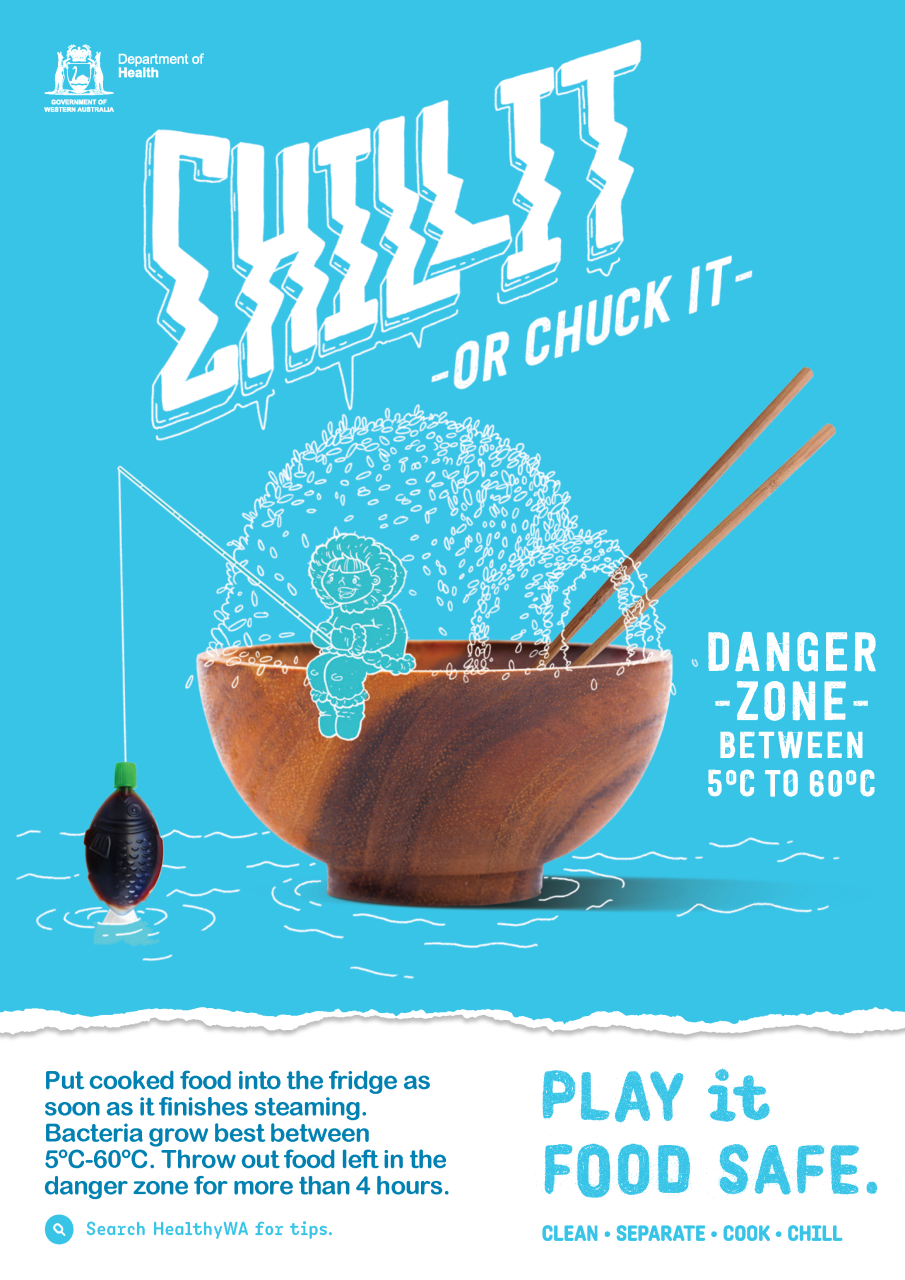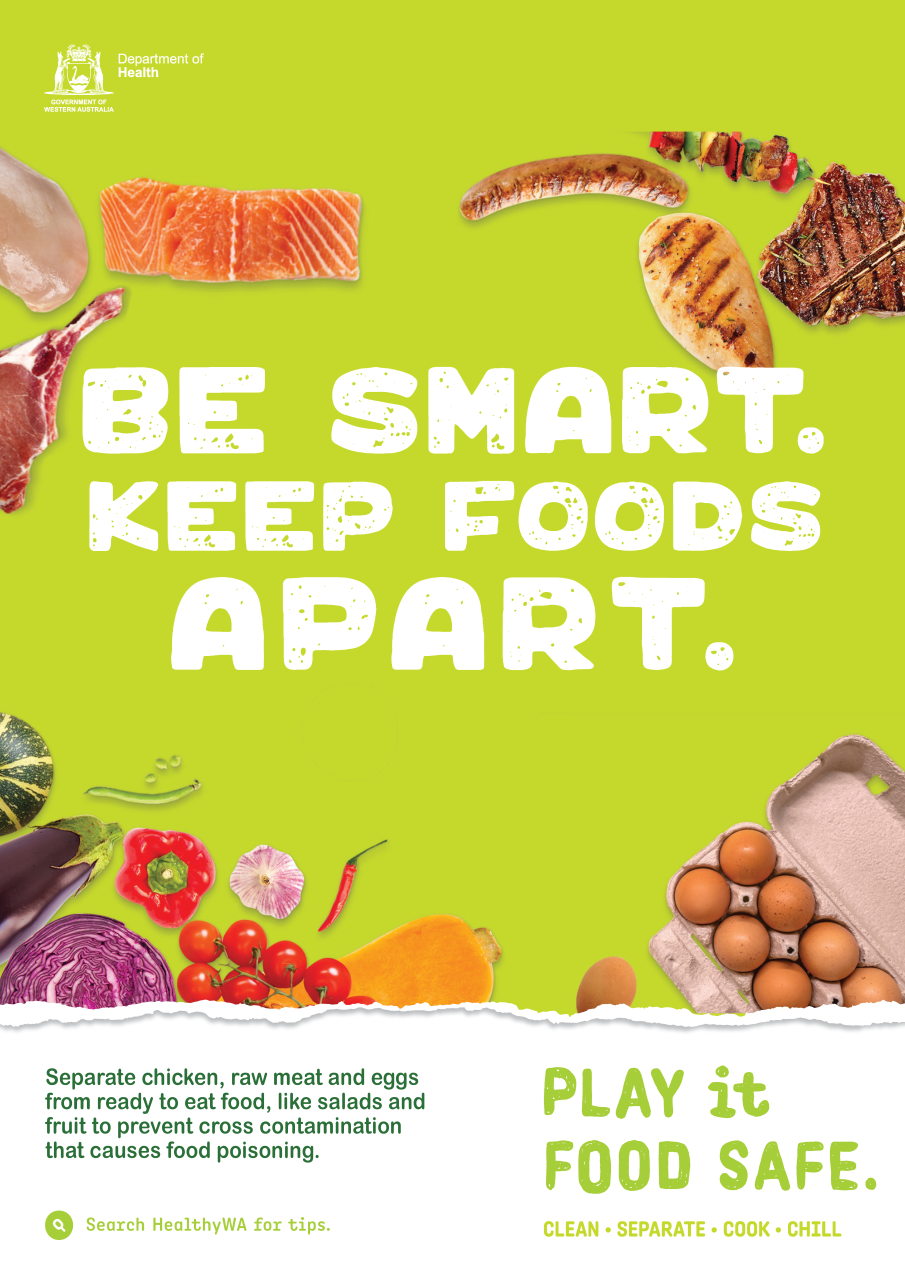Published on Thursday, 12 November 2020 at 10:15:57 AM
Most people think they handle and prepare food safely, yet statistics show the majority of food poisoning occurs in the home.
Food poisoning can be very serious, particularly for vulnerable sections of the community such as the elderly and children. However, preventing food poisoning is simple if foods are handled and stored correctly.
In recent years, Western Australia has seen a rise in Salmonella cases, which led to the development of the Foodborne Illness Reduction Strategy 2017-2021.
A public campaign was a key element of the strategy, which aims to reduce the number of foodborne illness cases by changing behaviour and culture around food preparation and storage.
This vibrant marketing campaign was developed to educate people who prepare and handle food at home, particularly behaviours around eggs, chicken and storing of perishable foods.
It emphasises that preparing meals at home is nutritious and enjoyable, and preventing food poisoning is simple when a few key behaviours are followed.
Key Messages:
- The majority of food poisoning happens at home. Make sure you Clean, Separate, Cook and Chill to prevent food poisoning.
- Never wash raw chicken as this spreads bacteria around your kitchen that can make you sick.
- Don’t let raw chicken juice contaminate other foods. Always wrap your chicken before storing it.
- Separate raw chicken, meat and eggs from ready‑to‑eat food, like salads and fruit to prevent cross‑contamination.
- Never wash raw eggs. Avoid bacteria getting inside the egg through the porous shell.
- Always cook eggs until the yolk and whites are firm. If you use raw eggs in foods such as desserts and mayonnaise, refrigerate immediately.
- Throw out food that has been left out of the fridge for more than 4 hours.
- Put cooked food into the fridge as soon as it finishes steaming.
- Avoid food being stored in the temperature danger zone (5°C to 60°C) as bacteria that cause food poisoning grows best at these temperatures.
Posters:




Back to All News